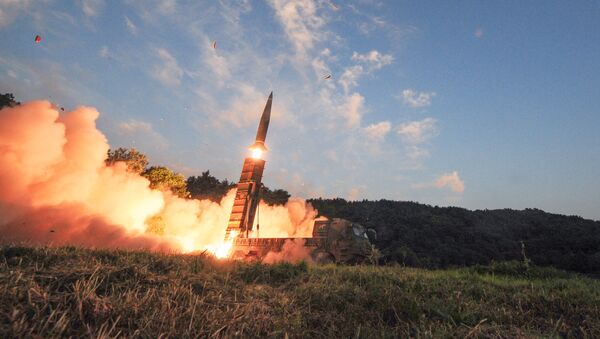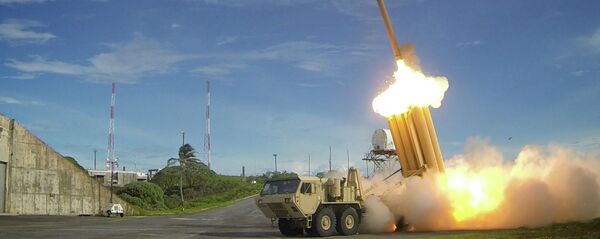Military sources have told the Korean Herald that the South Korean government is mulling the creation of a powerful ground-to-ground ballistic missile capable of striking anywhere in North Korea, carrying a payload of up to two tons of explosives. The weapon, known as the 'Frankenmissile', would be specifically designed to destroy North Korea's vast network of underground facilities and command posts. News of its possible development comes a day after an agreement was reached between Washington and Seoul to scrap Washington's 500 kg limit on South Korean missile warheads.
Asked to comment on this development, Vladimir Kozin, a professor at the Russian Academy of Military Sciences, told Radio Sputnik that the creation of this 'Frankenmissile' would only lead to a further escalation of tensions in the region.
"I don't understand why it was necessary to ask only the US," Kozin said. "The other 34 signatories of the Missile Technology Control regime, which prohibits the transfer and sale of ballistic missiles with a weight of over 500 kg, should have been asked as well," he added.
"Of course, this will negatively affect the regional balance of power," the expert stressed. "North Korea will be certain to respond. And this will lead to an escalation of tension not only between the two Koreas, but also between North Korea and the United States. And the escalation will manifest itself very quickly."
Last Sunday, North Korea conducted its sixth and most powerful nuclear test to date, later claiming that it had tested a hydrogen bomb. Pyongyang said the weapon could be mounted on an intercontinental ballistic missile capable of reaching the US mainland. The latest test came in spite of US and UN sanctions, and international calls for Pyongyang to stop development of its nuclear and missile programs. The US is expected to call a UN Security Council meeting on Monday to vote on a new draft resolution which would tighten sanctions on North Korea.
Security experts have said that a solution to the Korean tensions may involve Pyongyang reigning in its nuclear ambitions in exchange for Seoul and Washington cutting down their regular joint exercises in the Korean peninsula, including on North Korea's borders.




